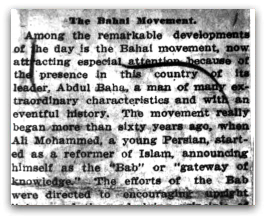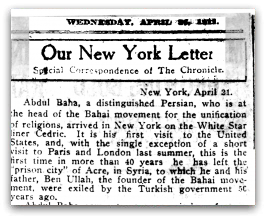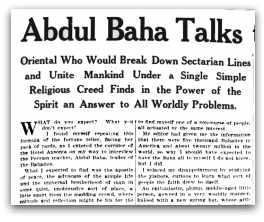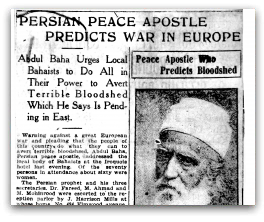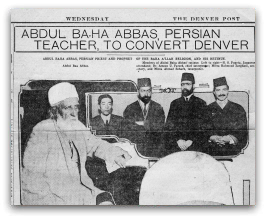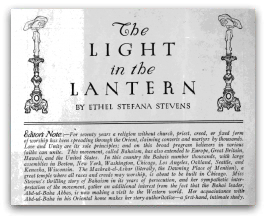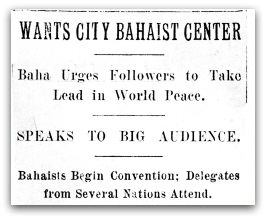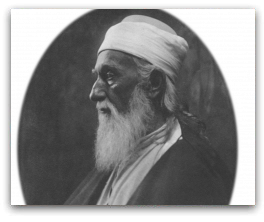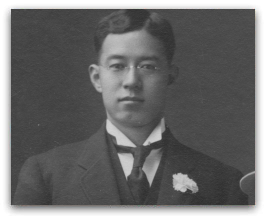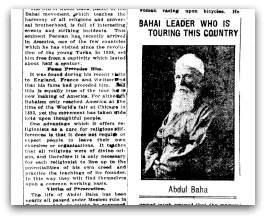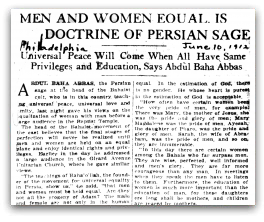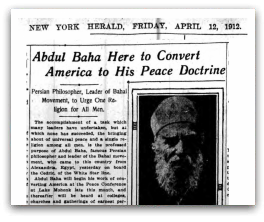Main menu
- ‘Abdu’l-Bahá’s Journey
- World Peace
- Stopping Racism in America
- Empowerment of Women
- More Principles...
- Prayer for America
Gender Equality and Women’s Empowerment
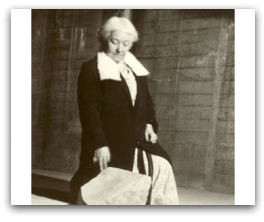
‘Abdu’l-Bahá described gender equality through the powerful analogy of a bird attempting to fly:
The world of humanity is possessed of two wings: the male and the female. So long as these two wings are not equivalent in strength, the bird will not fly. Until womankind reaches the same degree as man, until she enjoys the same arena of activity … humanity cannot wing its way to heights of real attainment.
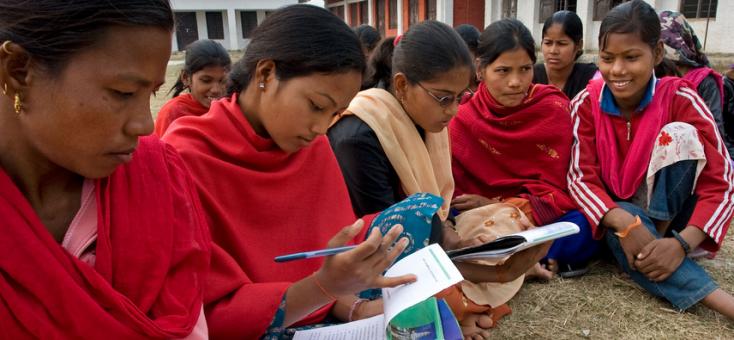
Many American women believed that their equal rights had been promised them in 1776, and that by the words “All men are created equal,” the nation’s founders surely meant humankind, including women.
Seventy years later, in 1848, 100 delegates to the historic 1848 Women’s Rights Convention—68 women and 32 men—signed a declaration of sentiments declaring women as equal to men.
At the dawn of the 20th century, women were still widely considered as weak, childlike creatures needing a man’s protection. In the first decade of the new century, indignant female activists took to the streets, weary of waiting for what they considered to be the single basic right of an American citizen—the right to vote. The suffrage movement called for passage of a Constitutional amendment introduced into Congress more than three decades earlier. Militant suffragists marched in parades, held silent vigils, and went on hunger strikes. Often supporters met fierce resistance. Opponents heckled, jailed, and physically abused them.
This foment was ongoing in the U.S. and England during ‘Abdu’l-Bahá’s visits. He commented on it in an address in Boston, saying “Demonstrations of force… are neither becoming nor effective in the cause of womanhood and equality.” He pointed out that “When men own the equality of women, there will be no need from them to struggle for their rights!”
In public addresses and private conversations across the country, ‘Abdu’l-Bahá made it very clear that in the teachings of Bahá’u’lláh men and women are considered equal, stating for example that:
“The one whose heart is purest, whose life and character are highest and nearest to the divine standard is most worthy and excellent in the sight of God. This is the only true and real distinction, be that one man or woman.
This teaching He considered “peculiar to the teachings of Bahá’u’lláh, for all other religions have placed man above woman.” However, although ‘Abdu’l-Bahá considered the equality of the sexes a spiritual reality, He recognized that in the social realm there were many inequalities of education and opportunity that held women back from full participation in society. It was this situation that He called upon America to remedy.
Education of Women and Girls
In 1912, only about a third of college students were women, and they were not expected to contribute to society in the same ways as men. ‘Abdu’l-Bahá not only advocated that “Daughters and sons must follow the same curriculum of study,” but went a step further:
“…the education of women is of greater importance than the education of men, for they are the mothers of the race, and mothers rear the children. The first teachers of children are the mothers. Therefore, they must be capably trained in order to educate both sons and daughters.”
Women and Peace
‘Abdu’l-Bahá also frequently linked the advancement of women with the cause of international peace, and met with some of the women who were most active in the peace movements of the day, including such well-known figures as Jane Addams and Sarah Farmer.
Early Bahá’í Women
At the turn of the 20th century, ‘Abdu’l-Bahá set the example of encouraging women and promoting them into leadership positions, choosing for example a 59-year-old American gynecologist, Dr. Susan Moody, to relocate to Iran to provide medical care to Persian women. As the first American woman to settle in Iran, Dr. Moody also worked tirelessly to help establish the Tarbiyat School for Girls. In 1902, ‘Abdu’l-Bahá designated an American Bahá’í woman as His emissary to the Shah of Iran, delivering a petition calling for a stop to Bahá’í persecution by the Iranian Muslim clergy. And the stone that was chosen as the cornerstone of the House of Worship in Wilmette was contributed by Nettie Tobin, a Bahá’í woman living in Chicago.Men and Women Must Cooperate
By example and argument, in words and deeds, ‘Abdu’l-Bahá promoted the idea that the advancement of women, and their complete equality with men, is a necessity for progress of both genders: “The happiness of mankind will be realized when women and men coordinate and advance equally, for each is the complement and helpmeet of the other.”
Today, Bahá’í women and men around the world are working together to promote gender equality, not only in the Bahá’í Community, but also in society at large.
Talks and Stories
- 1 of 3
- ››













